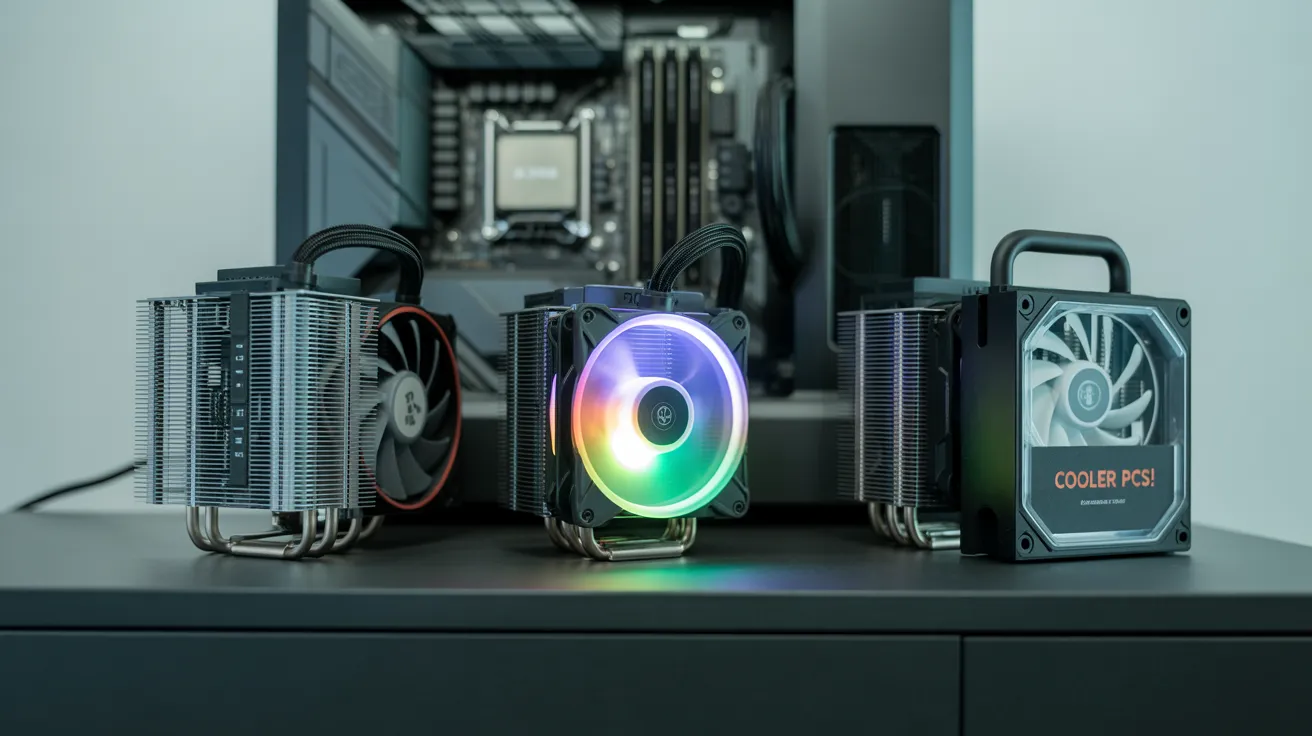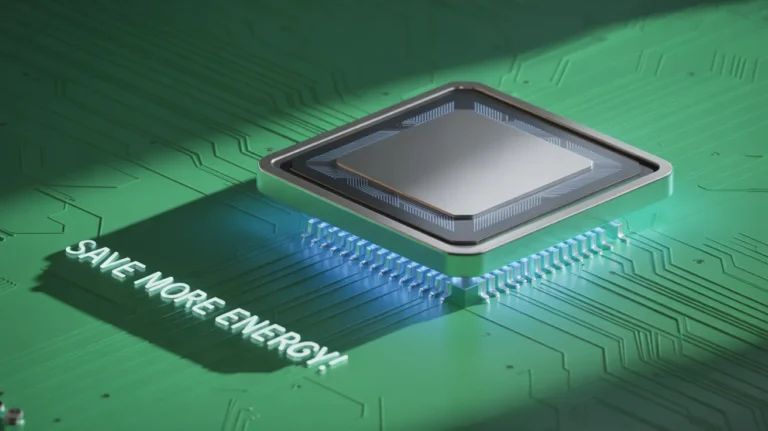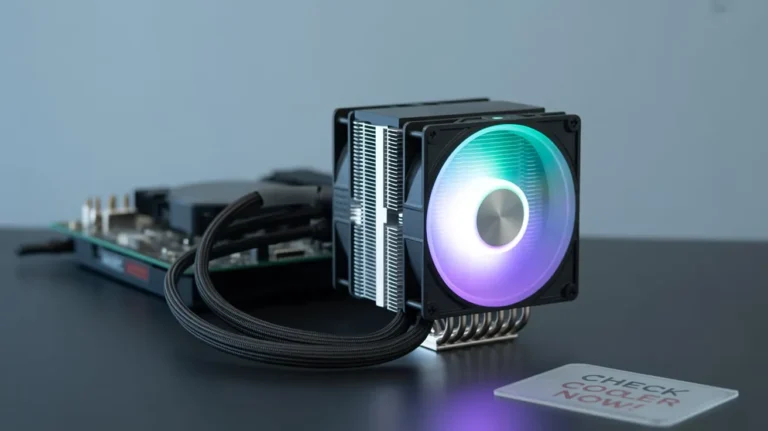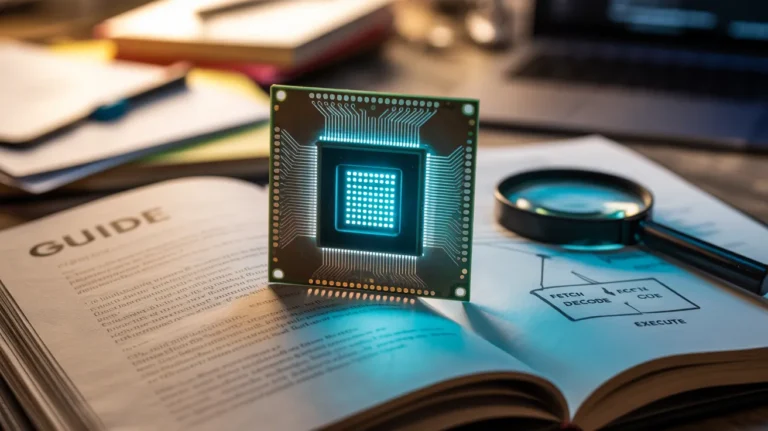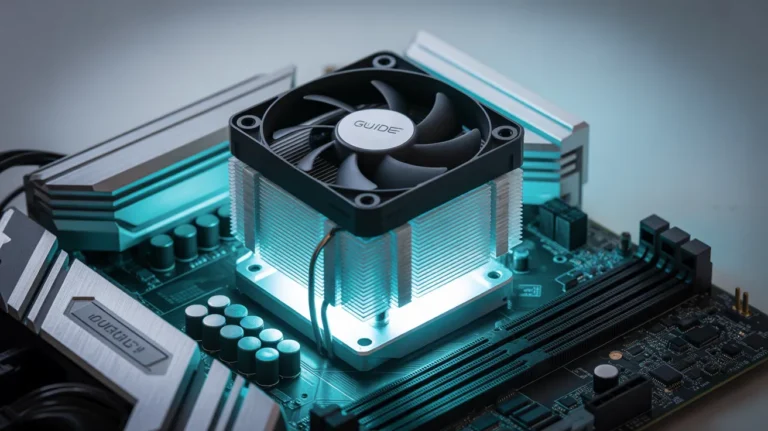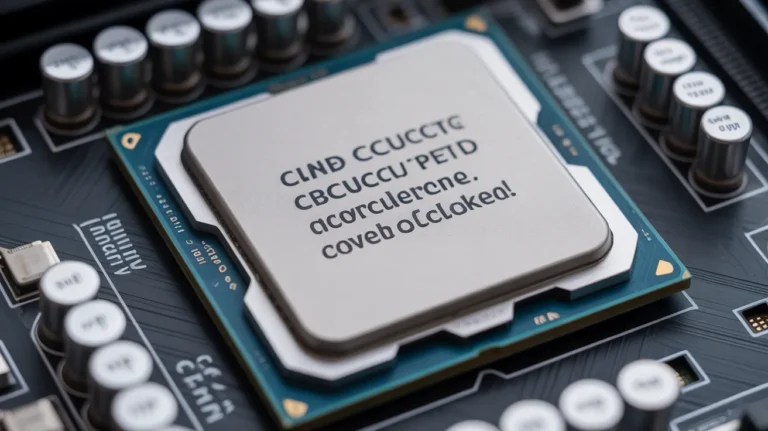What are the types of CPU coolers? Build Cooler PCs!
CPU coolers are mainly of two types: air coolers and liquid coolers. Air coolers use fans and heat pipes, while liquid coolers use water or a special fluid. Both keep the CPU cool, reduce heat, and improve performance.
In this guide, we will explain what are the types of CPU coolers, how they work, and which option is best for your needs.
Also Read: How does a CPU affect gaming? Complete Guide For 2025!
What Makes Liquid CPU Coolers Different from Air Coolers?
Liquid CPU coolers are different from air coolers in the way they remove heat. Air coolers use fans and metal fins to push hot air away, while liquid coolers use water or coolant to carry heat out. Liquid coolers often give stronger cooling and a neat design, but air coolers are simple, affordable, and reliable for most users.
Also Read: Why does Chrome use so much CPU? Close extra tabs!
Why Is Choosing the Right CPU Cooler Important for Performance?
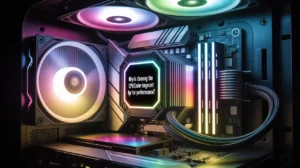
Choosing the right CPU cooler is important because it keeps your processor at a safe temperature. If the CPU gets too hot, it can slow down or even damage parts. A good cooler helps the CPU run faster, smoother, and lasts longer.
Also Read: What is CPU utilisation? Check Utilisation Regularly!
How Do Air Coolers Work to Keep CPUs Cool?
Air coolers work by pulling heat away from the CPU with a metal base and heat pipes. The heat then moves to metal fins, where a fan blows cool air over them. This process lowers the CPU temperature and keeps it stable.
Also Read: What is cpu opt header? Complete Guide 2025!
What Is the Difference Between Active and Passive CPU Cooling?
Active CPU cooling uses fans or pumps to move air or liquid and quickly remove heat from the CPU. Passive cooling has no moving parts; it only uses metal heatsinks to absorb and release heat. Active cooling is stronger, while passive cooling is silent but less powerful.
Also Read: What is a good CPU temp for gaming? Check Temps Often!
What Are Low-Profile CPU Coolers and Their Uses?
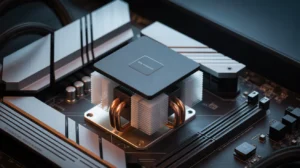
Low-profile CPU coolers are small and thin coolers made for compact PC cases. They fit where big coolers cannot be used. These coolers are useful for mini PCs, HTPCs, or slim systems where saving space is more important than maximum cooling power.
Also Read: What does CPU opt mean? Read Now!
Why Are Tower Coolers Popular for High-Performance PCs?
Tower coolers are popular for high-performance PCs because they have large heatsinks and big fans that remove heat quickly. Their tall design gives better airflow and stronger cooling, which helps the CPU run faster and stay stable during heavy tasks or gaming.
Also Read: What does the CPU light mean? Inspect the Light!
Why Do Heat Pipe Coolers Offer Efficient Cooling?
Heat pipe coolers offer efficient cooling because they use special pipes filled with liquid that quickly move heat away from the CPU. The heat spreads through the pipes to the fins, where fans blow it out. This process keeps the CPU cooler and more stable.
Also Read: How tight should the CPU cooler be? Check Guide!
How Can You Tell If a Stock Cooler Is Sufficient for Your CPU?
You can tell if a stock cooler is enough by checking your CPU’s temperature while using it. If the CPU stays cool and runs smoothly without noise or slowing down, the stock cooler is fine. But for gaming or heavy work, you may need a better cooler.
Also Read: What CPU cooler do I have? Check Cooler Now!
What Factors Affect the Cooling Performance of a CPU Cooler?
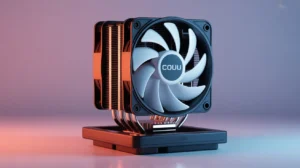
The cooling performance of a CPU cooler depends on many factors. These include the size of the heatsink, the number and speed of fans, the quality of heat pipes, and the airflow inside the PC case. Room temperature also affects how well a cooler works.
Also Read: How much power does a CPU use? Save More Energy!
How Do You Ensure CPU Cooler Compatibility with Your System?
You can ensure CPU cooler compatibility by checking a few things. First, make sure the cooler supports your CPU socket type. Second, check the size so it fits in your PC case. Also, confirm it doesn’t block RAM slots or other parts.
Also Read: What is high CPU temp? Check CPU Temps!
FAQs:
1. Which CPU cooler is better for gaming PCs?
For gaming PCs, tower air coolers and liquid coolers are best. They handle more heat and keep the CPU stable during long gaming sessions.
2. How do I choose between liquid and air cooling?
Choose air cooling if you want low cost and a simple setup. Go for liquid cooling if you need better performance, low noise, and overclocking support.
3. Do all CPUs come with stock coolers?
No, not all CPUs come with stock coolers. Budget and mid-range CPUs usually include one, but many high-performance processors do not, so you may need to buy a separate cooler.
4. Can a CPU run without a cooler?
No, a CPU cannot run without a cooler. Without cooling, it will overheat within seconds, shut down automatically, and may even be damaged permanently.
5. Is liquid cooling always better than air cooling?
No, liquid cooling is not always better. For normal use, a good air cooler is enough and more budget-friendly.
Conclusion:
The CPU cooler you choose makes a big difference in how well your PC runs. Air coolers are easy, reliable, and budget-friendly, while liquid coolers give powerful cooling for demanding tasks. Each has its own use, so pick the one that matches your system and needs. A good cooler keeps your CPU cool, safe, and performing at its best.

